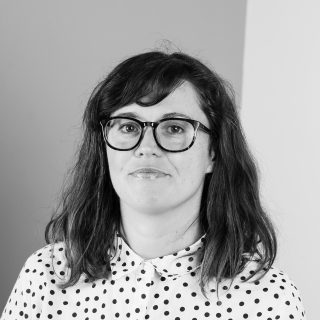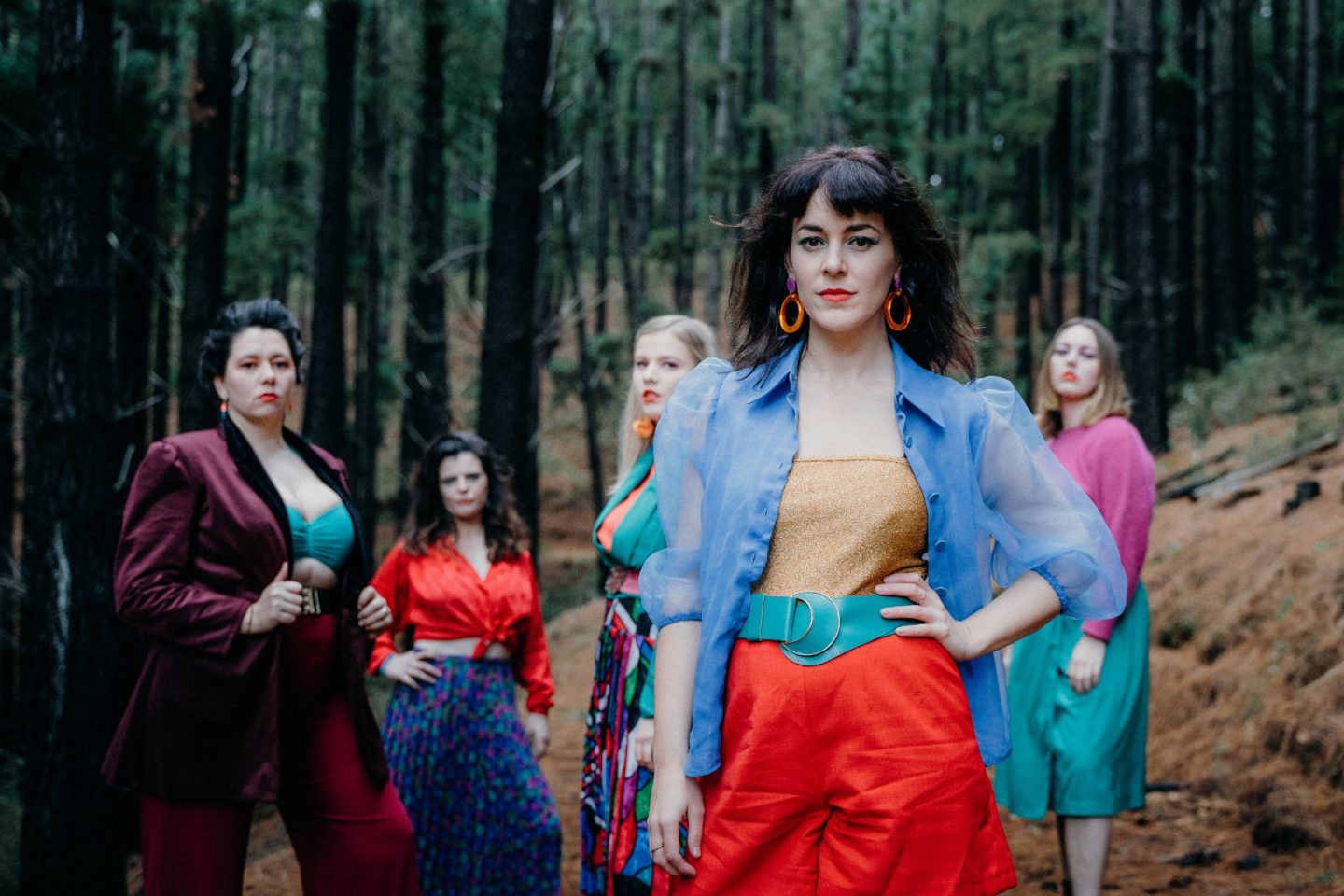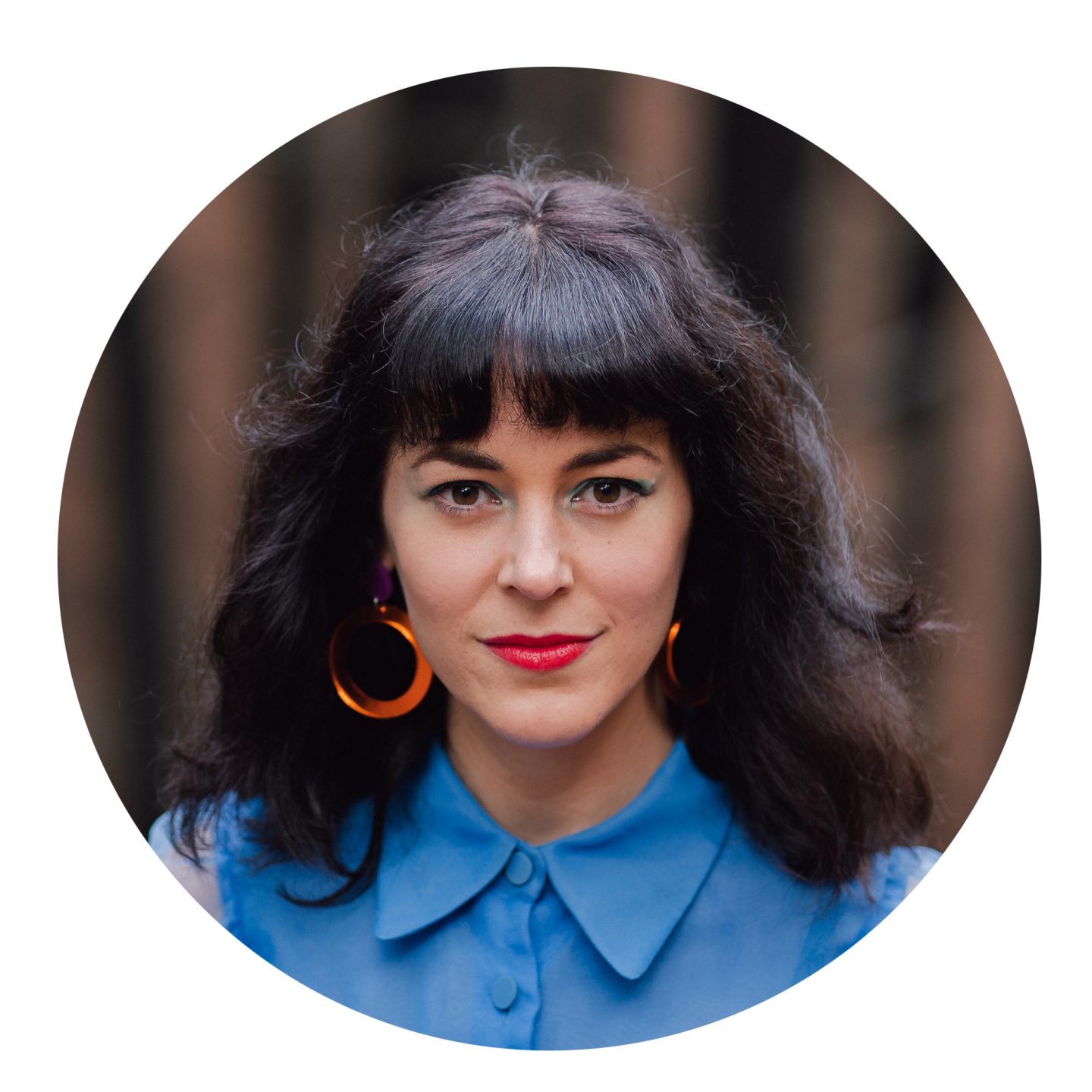
Kylie Maslen
Kylie Maslen is a writer and critic from Kaurna/Adelaide, and the author of Show Me Where it Hurts: Living with Invisible Illness (Text Publishing).

Britt Plummer is a self-described “clown with an agenda”. With her ever-evolving stage show Chameleon, Plummer demonstrates the form’s potential to create a “beautiful shared experience”.
Between 2015 and 2016, Plummer travelled to Paris to study under Philippe Gaulier – considered worldwide as one of the masters of physical theatre and clowning.
“I was encountering these performers that had this really special quality in the way they engaged the audience,” says Britt Plummer. “I [would feel] like the show was just for me in a room full of people. They [appeared to take] such a pleasure being with us, the audience, and they were breaking the fourth wall, they were playing with us: it was such a joy.
“They allowed us to dream and connect in a way that wasn’t just one performer on a stage,” she says of the “life-changing” experience. “[It] was really magical. Just one performer and an audience – we didn’t need lights, we didn’t [need elaborate] design.”
Plummer explains that by eschewing the theatrical detritus the performer has more room to breathe and as a result, so does the audience. This has given her an unlikely platform from which to explore political issues. In Chameleon, this is focused on social conditioning and gender.
“There is a style or method called bouffon, which is essentially a clown that’s not so naïve. They’ve got something to say, they’ve got something that they want to shine a light on, and they’re going to use humour and parody to reveal it with [wit] and dignity.”
In Chameleon, bouffon is therefore “about approaching a difficult subject with lightness, making it [so that] we’re not shoving [political ideas] down your throat.
“It’s like we’re having a conversation [about] all the things that are shit about the world [while] being able to laugh. That is becoming my way of storytelling.”

“And with this work, I want comrades, I want friends up there with me supporting me and helping me through that journey.”
Britt Plummer
Chameleon made its debut last year as a one-woman Fringe show, but for its latest form Plummer and director Hew Parham have expanded it into an ensemble work.
“I [didn’t] want to be alone on stage anymore,” she says of the decision to add a chorus of women around her. “And with this work, I want comrades, I want friends up there with me supporting me and helping me through that journey.”
Expanding Chameleon’s cast has also allowed Plummer to confirm how widespread the issues of gender and power are. “In rehearsals we share stories. Like we all know that feeling when you’re on the dance floor and you feel this presence behind you, this bulge behind you rubbing up against the back of you. It’s horrible, but it’s universal.”
Rather than continuing to share these stories in quiet spaces, over coffee or a drink, Plummer hopes Chameleon will shine a light on these all-too-common incidents. “Why are we not talking about it more publicly?’ she asks. “That’s really why the show came about initially, but I knew if I put more women on stage that, unfortunately, [these are] shared experiences.
“So much of this work is about being human. It’s a conversation about some tricky issues in a safe space. And you can be a spectator in that, but actually by being a spectator of that conversation you’re part of it.”
When asked what she hopes audiences will gain from seeing Chameleon, Plummer replies, “I hope a change in perspective in how we look at women, and how quick we are to make judgements”.
“I hope that the audience will consider how that behaviour affects the people around them and have the courage to be different.
“It’s [also] a quiet call to action to disarm the patriarchy. I hope women feel empowered [by the show]. So much of this work is [about] the choices that we make in life. We should be able to live the life that we want without being cautious, and without being talked down to because we wear too much make up or not enough make up.
“Whether it’s our appearance, whether it’s our behaviour. That we’re too forceful, too angry, too hysterical, too weak. Trying to disarm all of that and just go: let’s be different and treat each other better and not be so quick to judge people.”
Ultimately Plummer comes back to the physical performance. Clowning – bouffon especially – allows Chameleon “to be funny and light, even though we’re dealing with tough subject matter”. True to its form, and its title.


Kylie Maslen is a writer and critic from Kaurna/Adelaide, and the author of Show Me Where it Hurts: Living with Invisible Illness (Text Publishing).